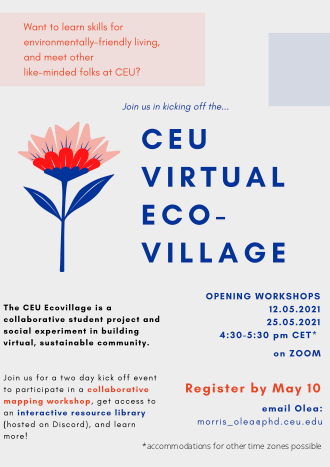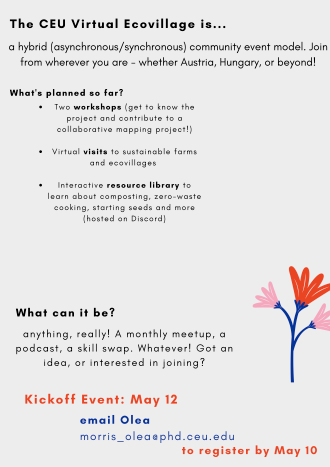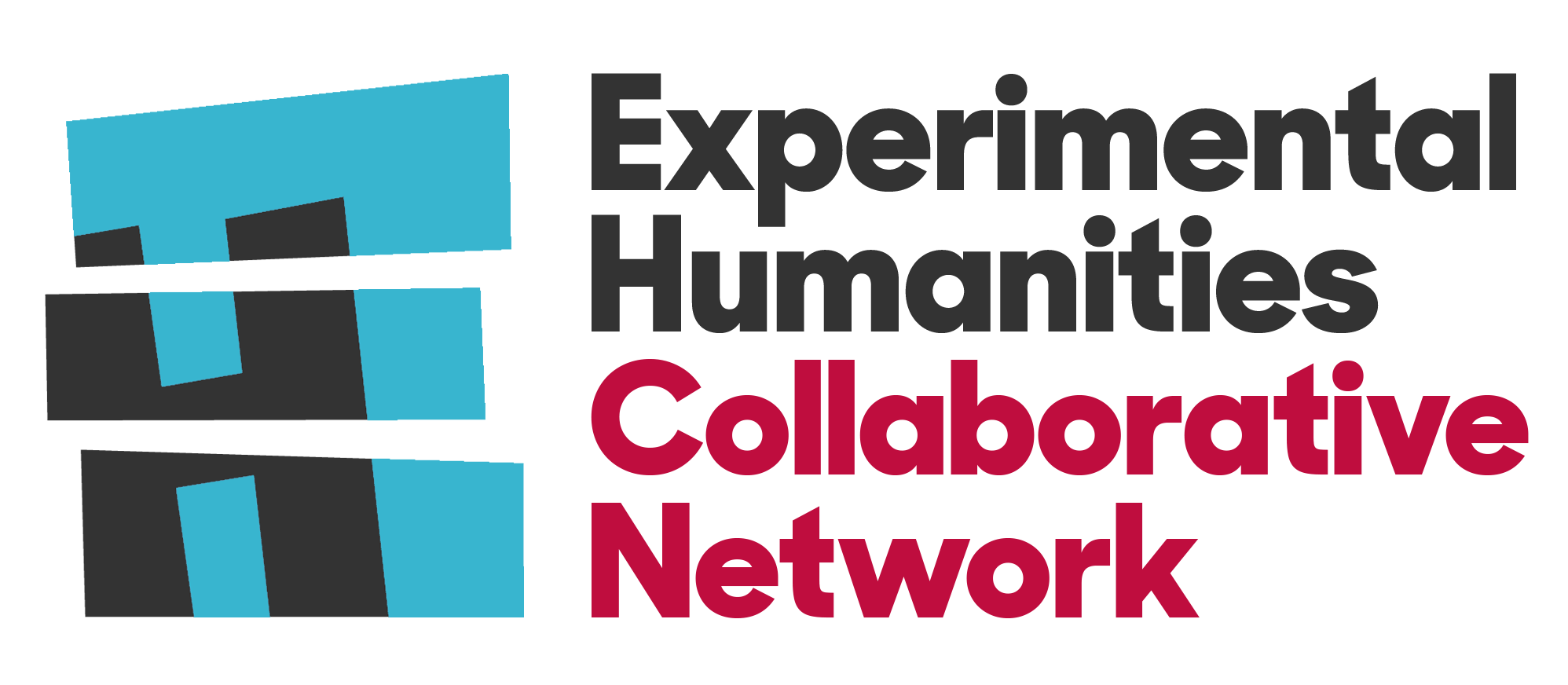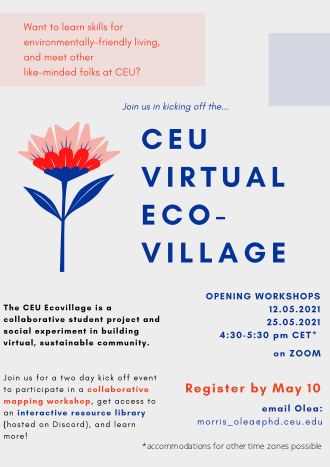Welcome to The Experimental Humanities Collaborative Network
Central European University (CEU) Virtual Ecovillage
In 2021, the Central European University (CEU) community was highly distributed – in addition to operating from two campuses, many students and faculty were unable to share common spaces, or were working from their home countries. This initiative was an experimental venture to explore avenues for community-building around sustainability initiatives, and drew on a diverse toolkit adapted from the environmental humanities for this purpose.
The “virtual ecovillage” is a hybrid (synchronous/asynchronous) event model that kicked off with a series of two participatory mapping workshops to orient students to the project and to elicit connections between participants. The results of this workshop were recorded and compiled in a digital art project that was presented at the RECOMS-ITN Spaces of Possibility Conference in early June in (virtual) Brussels, exploring the possibilities of “virtual sustainable communities” in university settings. This was followed up with the creation and publication of a digital resource library (hosted on Discord), providing space for students to share and learn sustainability skills - including zero-waste cooking, composting, saving seeds, growing food, and more. Students were introduced to digital tools that they can use to explore further skills in their home cities (for example, for aging and wildlife identification through the National Geographic “SEEK” app). Finally, a series of “virtual visits” to integrated farms and intentional communities (one in the UK, the other in Mexico) introduced students to players in the sustainability community, and potentially built connections for future research.
Organized by Olea Morris, Central European University




